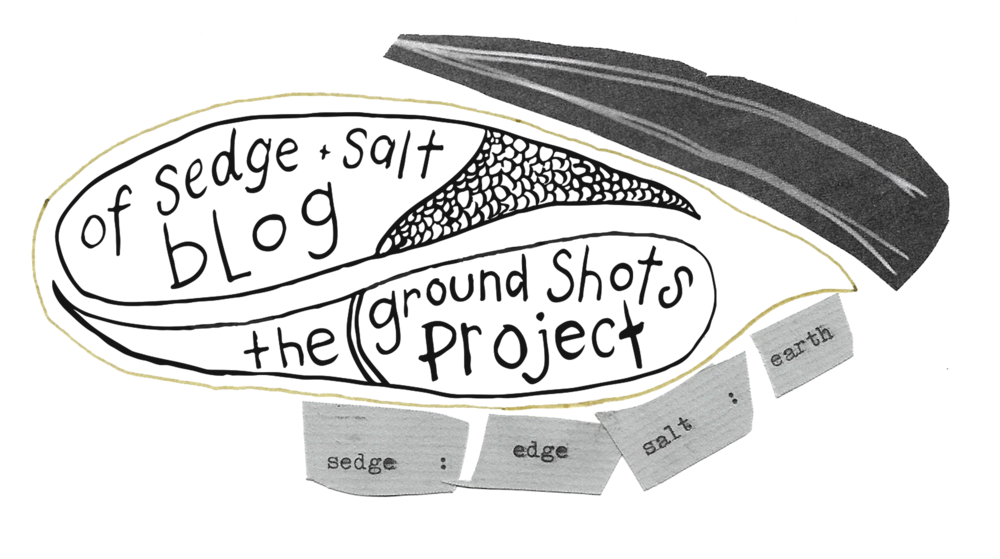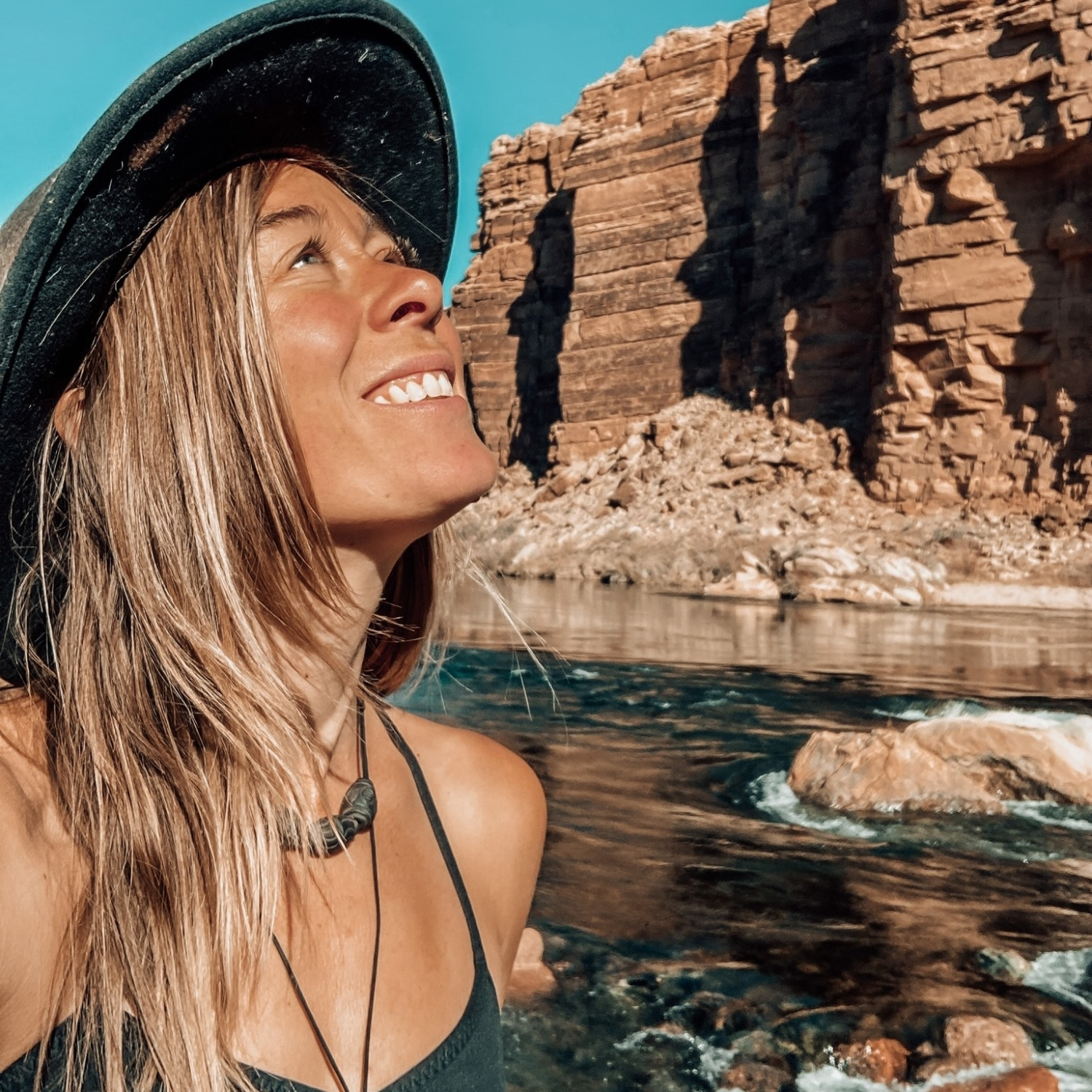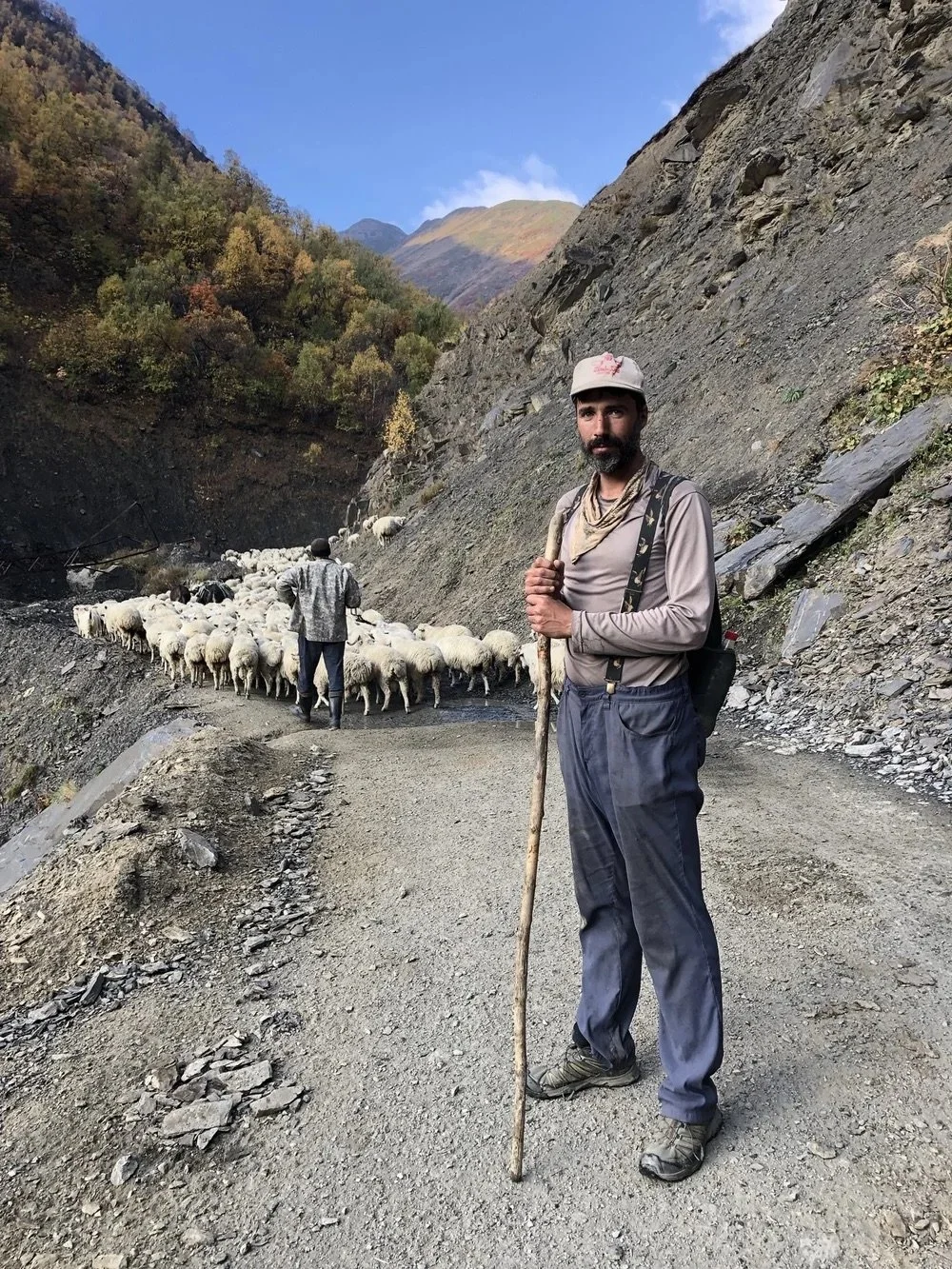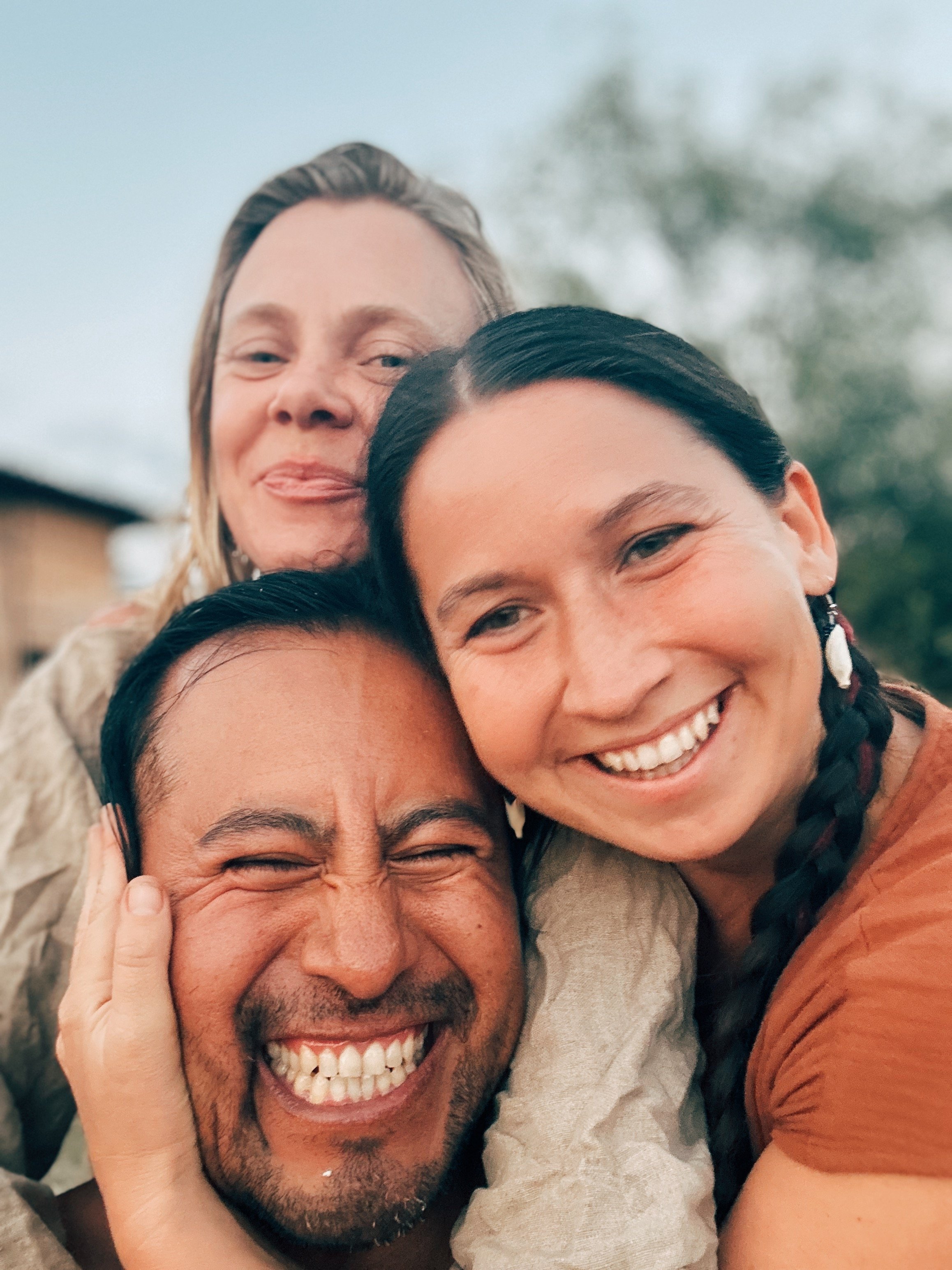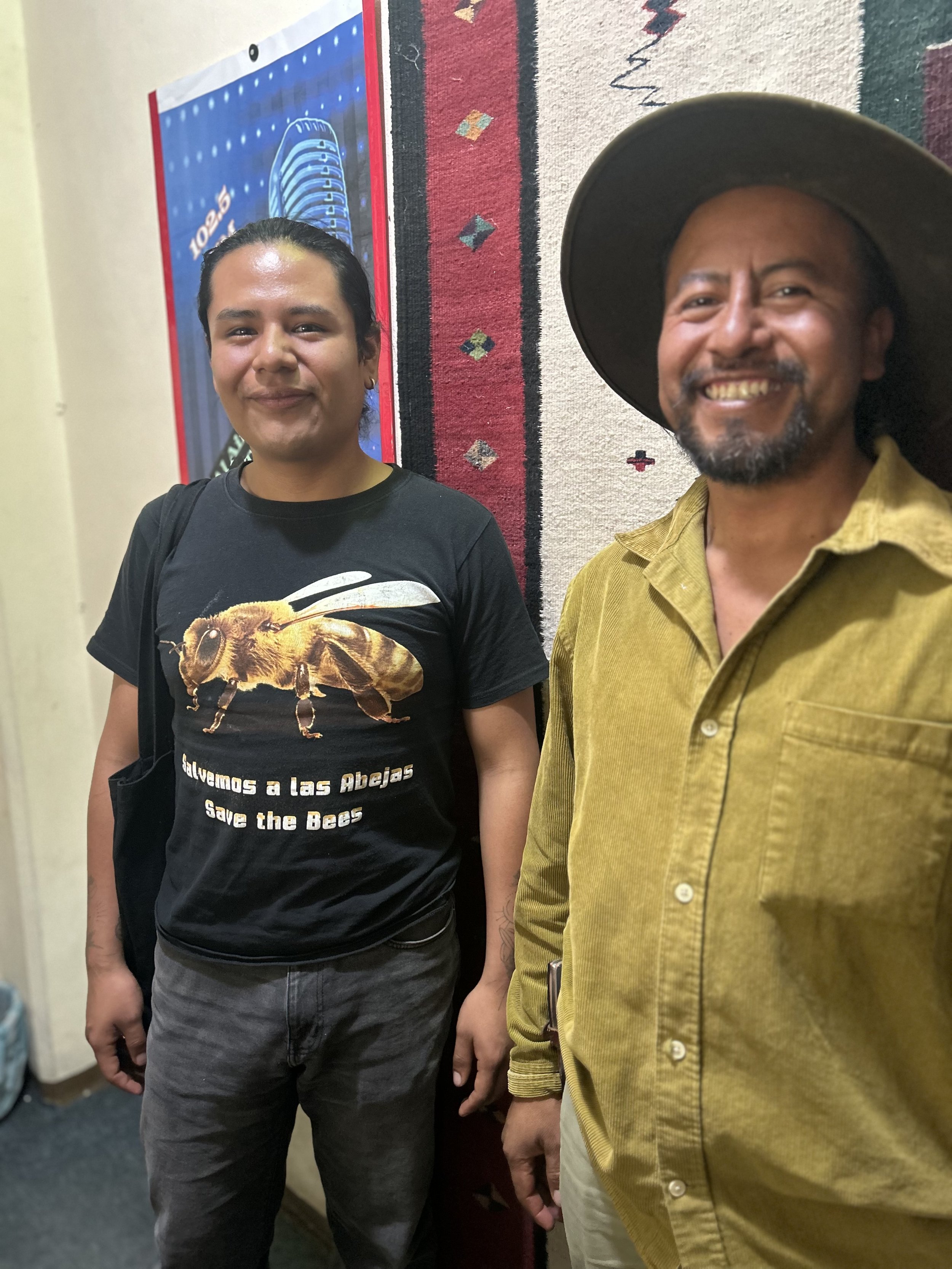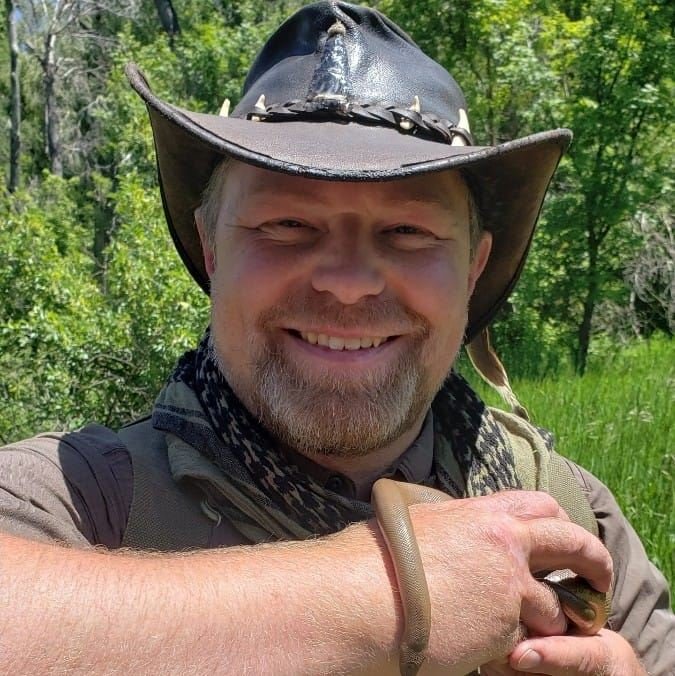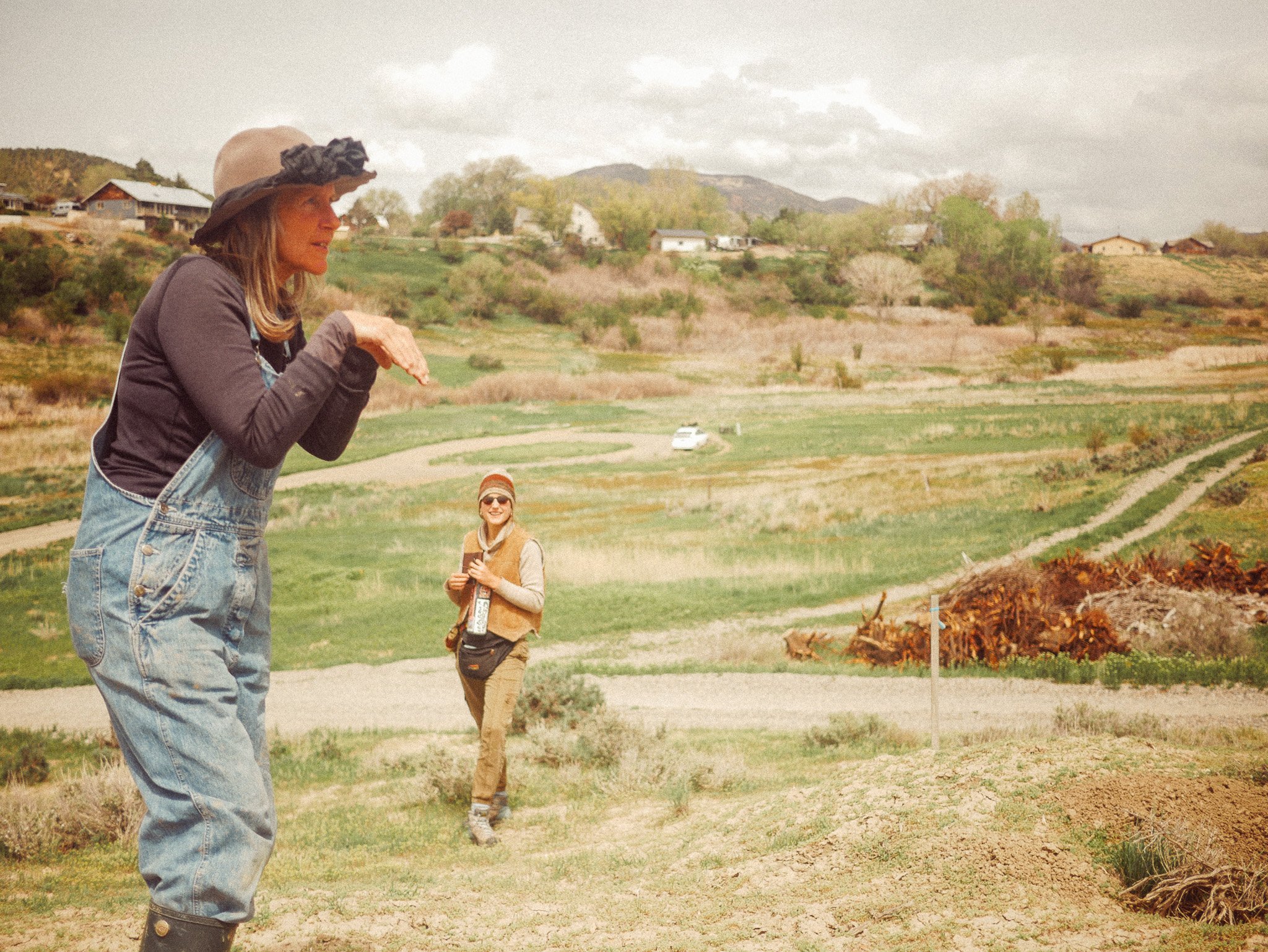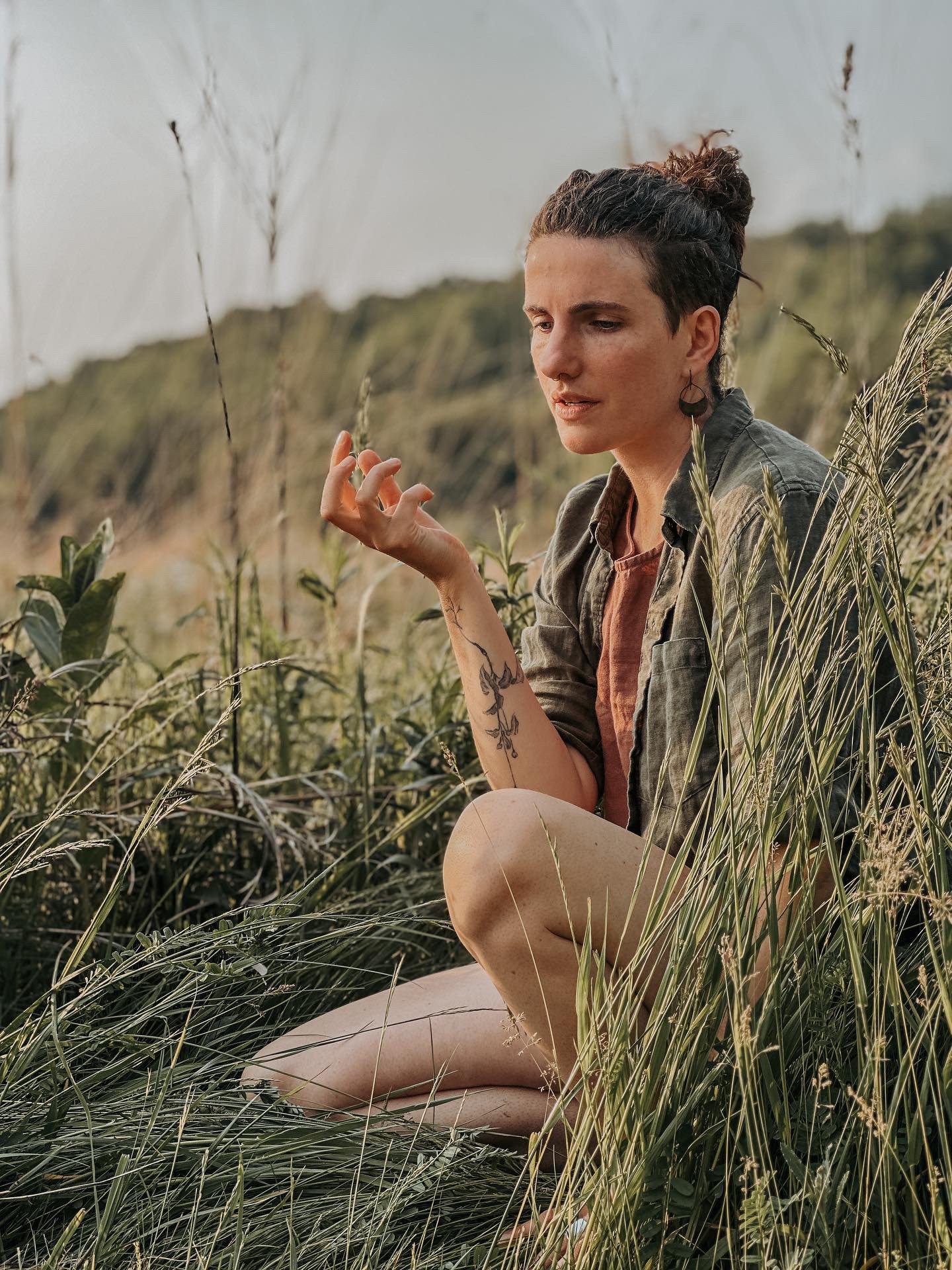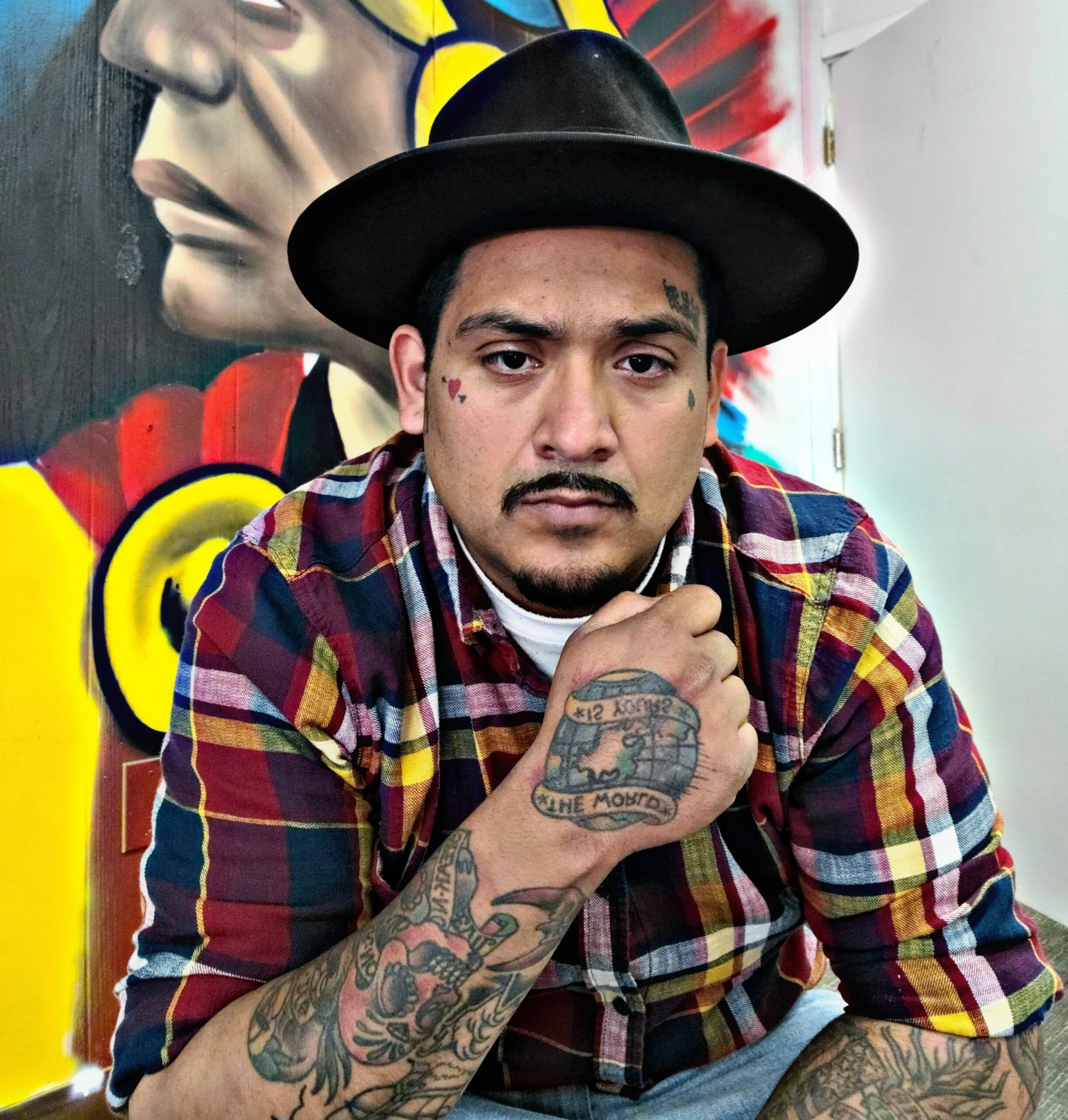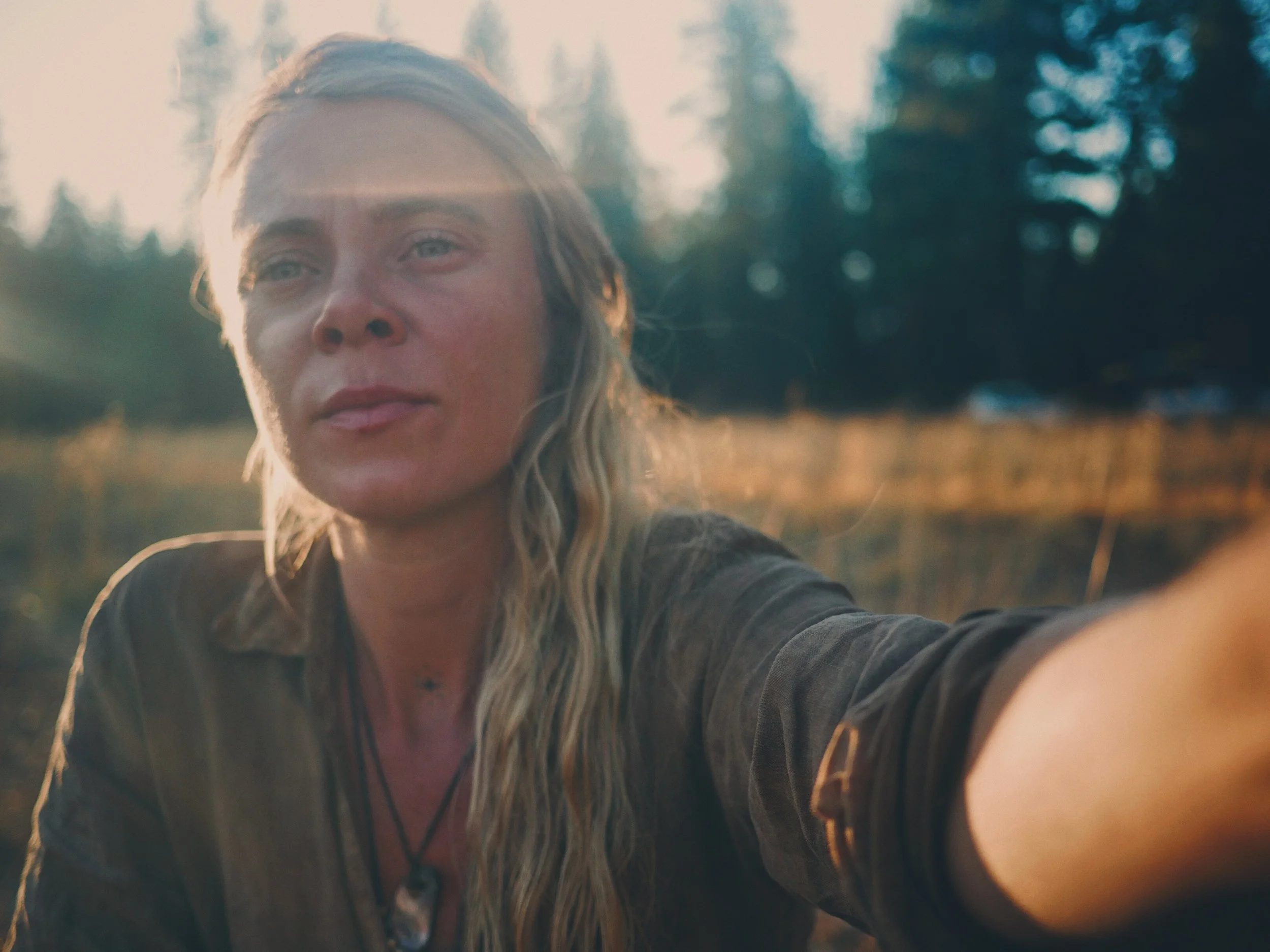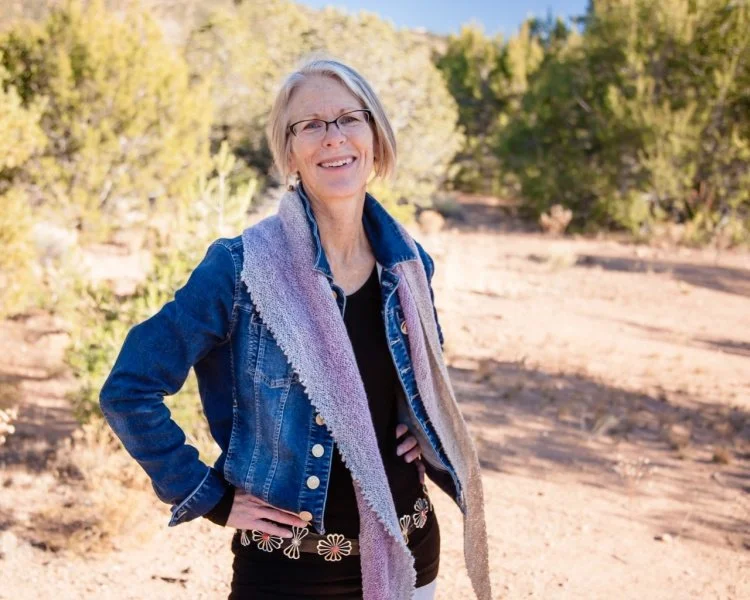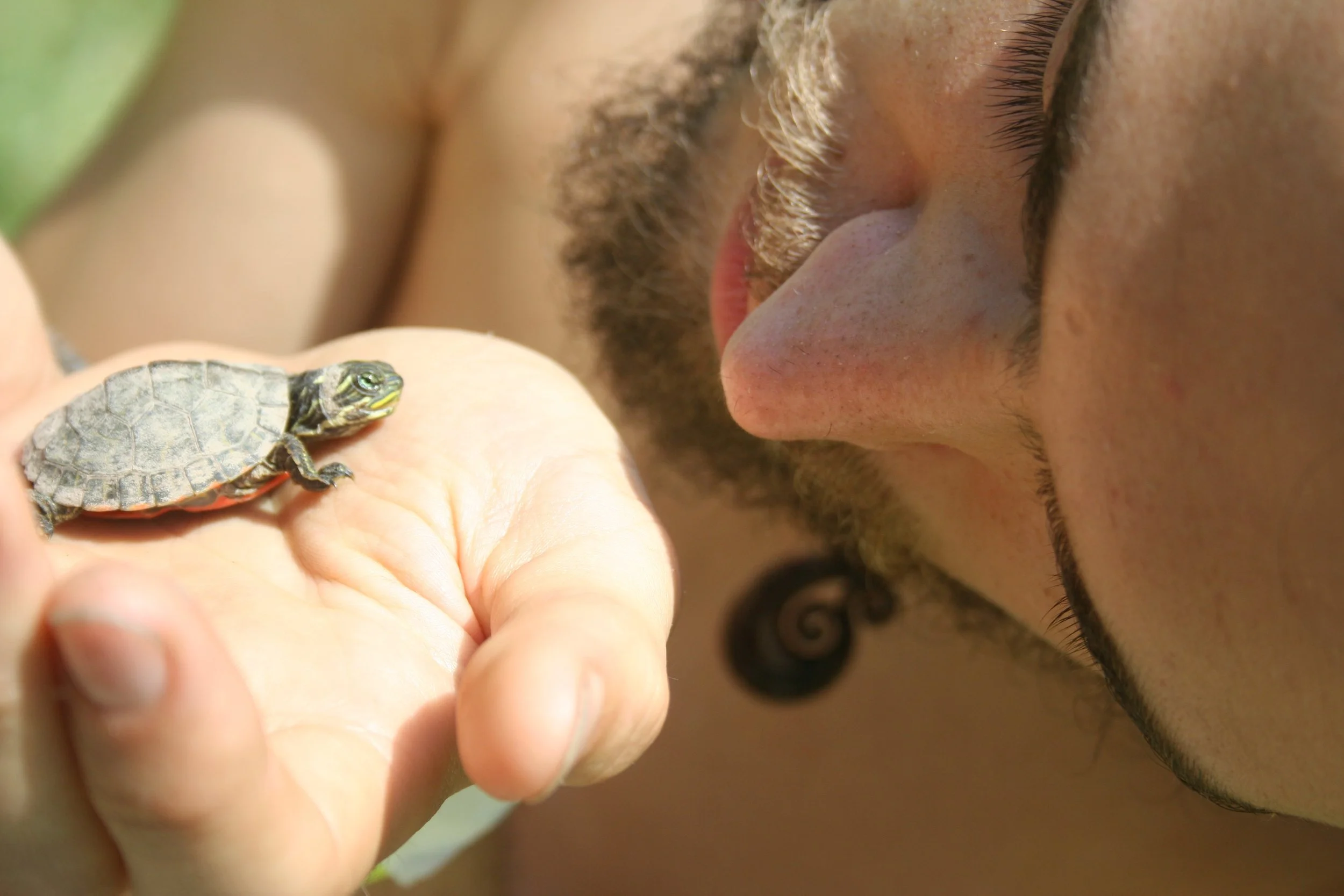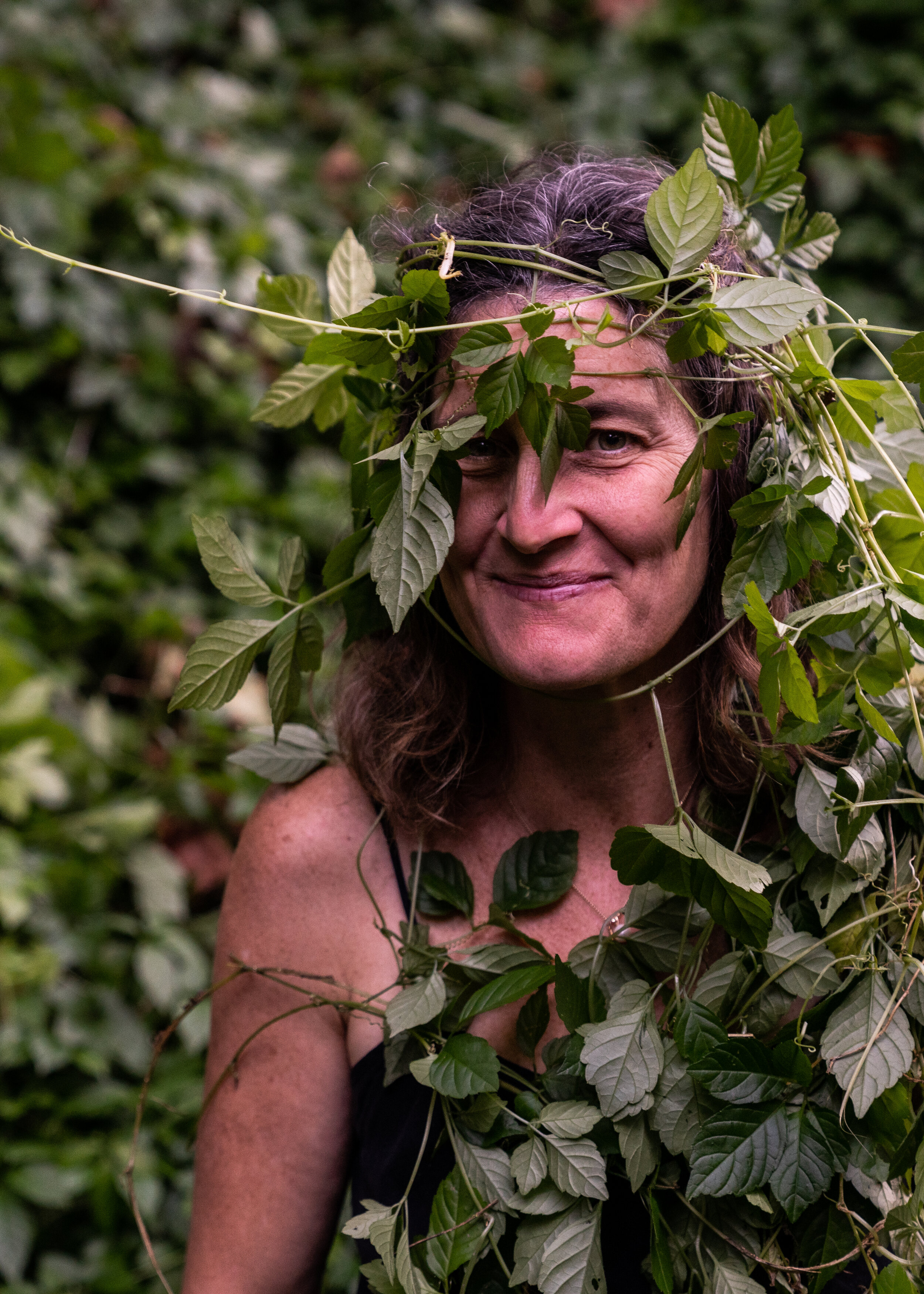Episode #33 of the podcast features another conversation with Nikki Hill and Gabe Crawford recorded on the hillside at Small Potatoes Farm in Paonia, Colorado. Listen to episode #31 with Nikki and Gabe on the basics of wild-tending, here.
Gabe Crawford was raised on a small homestead outside of Durango, Colorado and started learning about plants from an early age. He got launched on his plant journey by studying with Katrina Blair at the Turtle Lake Refuge in Durango. He moved to Sandpoint, Idaho where he worked with Twin Eagles Wilderness School and Kaniksu Land Trust mentoring kids. Through this, he started naturalist training which opened him up to the world of wild tending, Traditional Ecological Knowledge and the ancient and intricate relationships between humans and ecology. Gabe spent time with Finisia Medrano learning about the ancient wild gardens of the west that were and still are tended by indigenous peoples and was taught how to tend these first foods and plant back for future abundance. He collects the seeds of native foods plants, fruit trees, berries and other exotics to plant feral orchards and wild gardens.
Nikki Hill can be found chasing wildflowers throughout the western US. She is not sure when her adoration of plants began, but they share a kindred spirit. Nikki earned a bachelors degree in environmental science and botany which led her to the field of habitat restoration nearly 16 years ago. Disillusioned by methodology that focused on eradication, she struck off on her own. She spent six years growing food and medicine, first as an urban farmer and then as a nomadic rural farmer, and co-founded Daggawalla, a seed and herb company. Since 2014, she has been exploring her feral roots as a wildtender, planting gardens outside agricultural boundaries. Her hope is to foster habitat resilience by sowing a living seed bank for the future, in a spirit of collaboration with the non-human world. Her website can be found at www.walkingroots.net.
In this episode with Nikki and Gabe, we talk about:
unpacking the common use and colonialist origins of war-making language when talking about 'invasive' and 'native' plants
the political influences at play in the current narrative around invasive plants
the relationship between migration and climate change
the economic commodity associated with the 'war' on 'invasives' or 'illegal aliens'
how 'native' plants are called 'invasive' based on cultural and economic agendas informed by capitalism
how the desire to protect Sage Grouse and Sagebrush habitat is being turned against other native plants like Piñon Juniper forests
how native Juniper trees are treated as invasive and 'encroaching' because they thriving during climate change and expanding their range
succession changing when the conditions change – a place for invasives
scapegoating invasives instead of facing the massive fragmentation and devastation we've caused the environment in the past few hundred years
the influence of bias on ecological and restoration research
how and why people and other animals, birds move plant species including invasive species around
considering deep time when thinking about what plants are 'native' or 'natural' or what the land is supposed to look like moving forward in time
how awesome Russian Olive is!
using 'invasive' plants as medicine
how 'invasive' plants often mend and remediate damaged soil, water, air
some ways to integrate Traditional Ecological Knowledge into invasive species interaction
Links:
‘Tending the Wild’ by Kat Anderson
Tending the Wild Broadcast special on YouTube
Gabe's instagram @plumsforbums
Gabe's facebook page, where he occasionally share wild-tending info
Nikki's facebook page, where she occasionally shares wild-tending info
Nikki’s website: http://www.walkingroots.net/
‘The Failures of Farming & the Necessity of Wildtending’ by Kollibri terre Sonnenblume
‘The Troubles of ‘Invasive’ Plants’ by Nikki Hill & Kollibri terre Sonnenblume, free zine download, or buy a hard copy in the store on Kollibri’s website
Support Gabe via Paypal for his wild-tending efforts: paypal.me/johnnyslug
Support Nikki via Paypal for her wild-tending efforts: paypal.me/nikkiphill
‘Invasive Plant Medicine’ by Timothy Lee Scott
‘Healing Lyme’ by Steven Buhner
A few plants mentioned in the podcast, and links for further study:
Kudzu/Kuzu
Support the podcast on Patreon to contribute to our grassroots self-funding of this project.
Support the Ground Shots Project with a one time donation via Paypal at: paypal.me/petitfawn or click the donate button below.
Our website with backlog of episodes, plant profiles, travelogue and more: http://www.ofsedgeandsalt.com
Our Instagram page @goldenberries
Join the Ground Shots Podcast Facebook Group to discuss the episodes
Subscribe to our newsletter for updates on the Ground Shots Project
Theme music: 'Sweat and Splinters' by Mother Marrow
Interstitial Music: ‘Nijidema’ by Joe Hedges
Learn more about the story behind Joe Hedges’ piece ‘Nijidema,’ which is one out of five pieces in a work influenced by Joe’s time in a small village in China: https://joehedges.bandcamp.com/album/nijidema
Extra banjo tunes by Gabe Crawford
Produced by: Opia Creative
